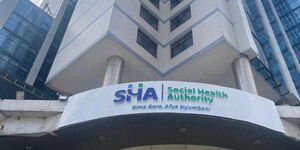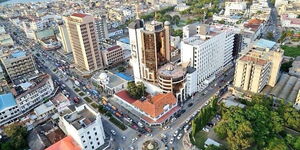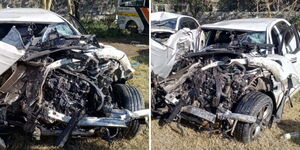The matatu sector has been one of the most affected industries owing to the steep rise in the cost of fuel in the subsequent months that has led to a tough economic environment.
Stakeholders in the matatu industry have expressed frustrations over the cost of doing business which has crippled operations for many investors who are opting to flee the industry.
The situation has further escalated, with matatu owners facing auction or jail terms for defaulting on loans.
Fuel Costs
Speaking to Kenyans.co.ke, Brendan Marshall, a senior member of the Matatu Owners Association (MOA), explained that the hike in fuel costs as well as the doubling of the Value Added Tax (VAT) on fuel from 8 per cent to 16 per cent, disrupted the business.
"If you hike the fuel cost by Ksh50 and reduce it by Ksh2. At the end of the day, there's nothing they (President William Ruto’s regime) have done,” Marshall lamented.
“If they want to help the sector, they must reduce it by a certain percentage. They have been increasing the cost gradually. They should reduce it by at least Ksh10.”
“The cost of fuel has a ripple effect on these other things. If it goes high, you've tampered with the logistics.”
Edwin Mukabana, Federation of Public Transport Sector chairman, echoed his remarks, stating that the depreciation of the shilling has caused a ripple effect on the cost of living.
The weakening of the Shilling against the Dollar creates uncertainty amongst investors, creating an unfriendly business environment.
Insurance Costs
Marshall explained that matatu operators were also grappling with exorbitant insurance costs.
Public Service Vehicles (PSVs) belonging to established Saccos have been auctioned for incurring huge debt, while some drivers were committed to civil jail for being unable to pay their insurance claims, according to the matatu operator.
“There's no way you will invest Ksh7 million in purchasing a 33-seater matatu, expecting it to give you a minimum of Ksh250,000 a month but the car ends up not giving you even Ksh10,000 in a day,” he noted.
“For such a loan, a financial institution will want you to give a minimum of Ksh100,000 per month. You have not yet accounted for insurance premiums, as well as costs of joining a Sacco, cost of pimping your vehicle to a standard look.”
Competition
The matatu bosses opined that unnecessary competition has been created as a result of the government’s inability to regulate the entry and exit of Saccos in the sector.
“This often leads to unfair and wasteful competition. It also leads to fare undercutting with some Saccos offering fares at below the standard rate to attract customers. Overall, this makes the business unprofitable,” Mukabana explained.
“The government knows that most of those who have invested in the industry are private entities. The government also knows there are many loopholes in the industry due to competition and disunity among Saccos,” Marshall added.
Corruption
Mukabana emphasised that corruption in various sectors has significantly complicated their operations. He identified four sectors that are riddled with graft only favourable to the high and mighty.
This includes the Judiciary, National Transport and Safety Authority (NTSA), traffic police, and County Askaris, better known as Kanjos.
Mukabana detailed that investors end up using a lot of money to ‘facilitate’ all the sectors in order for them to provide the required service.
“We've asked the government to introduce a technology-based system that charges instant fines for those involved in corruption,” he noted.
One of the ways, he suggested, was adopting a cashless system for transparency and ease of tracking the records.
He, however, noted that the government has been silent on the matter.
Spare Parts
The matatu stakeholders raised concerns over the rate of fake spare parts being imported into the country, attributing this issue to corrupt officials.
He also cited the influx of vehicles breaking down and the increase in road accidents as consequences of importing counterfeit products.
In contrast, genuine spare parts are also becoming more expensive, hence out of reach for many Kenyans who are grappling with the tough economy.
“Owing to these factors, investors opt to pour their money in other sectors as the number of passengers using matatus on a day-to-day basis has reduced,” he explained.












